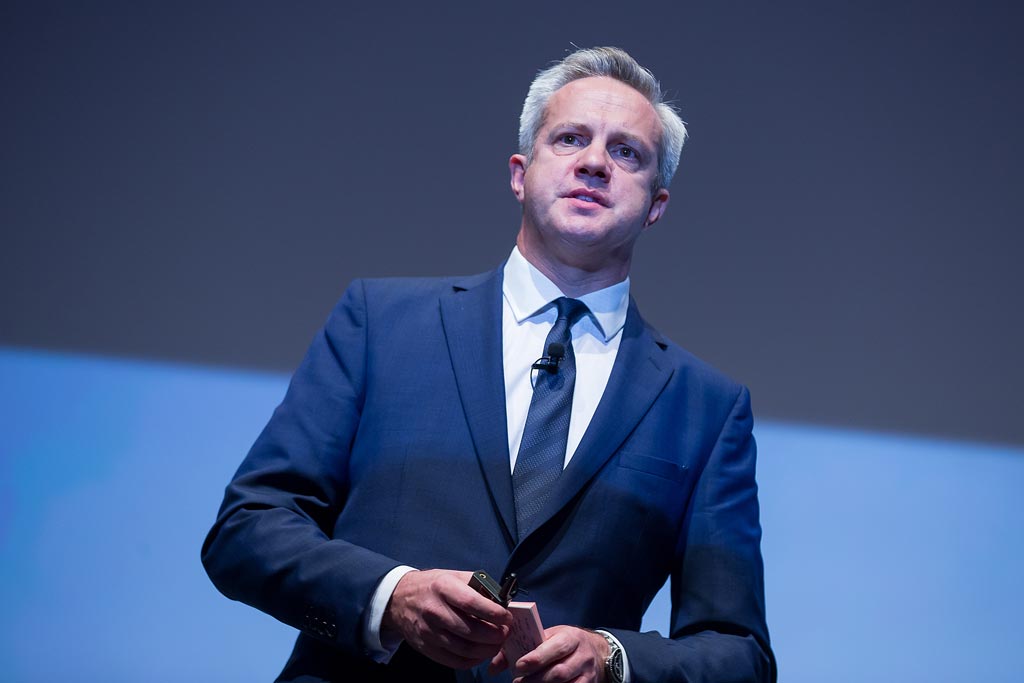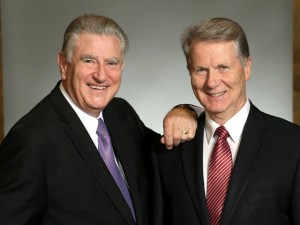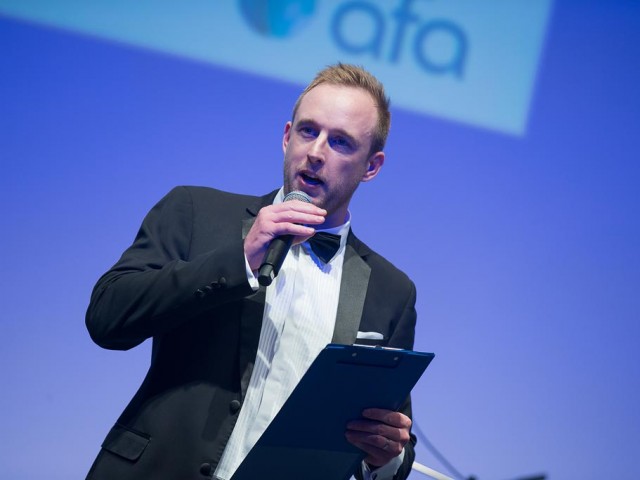UK adviser, David Braithwaite, shares his journey from starting out as a ‘product flogger’ to becoming a true professional delivering advice strategies in a business he loves…

AFA National Adviser Conference Keynote Speaker, David Braithwaite
As a keynote speaker at the AFA National Adviser Conference in October, David Braithwaite took his peers on a personal and sometimes confronting and difficult journey through a period of regulatory change in the UK, similar to that currently taking place in Australia. These changes acted as the spur to kick-start Braithwaite on a path that has seen both him and his business undergo a metamorphosis and emerge as a totally different service in almost every respect.
What it was
Braithwaite accidentally fell into financial services and commenced his advice practice 21 years ago. From the time he commenced until around 2011, he considered himself to be a product flogger, rather than an advice service provider. When initially recruited into the industry, he said he was told that if he ‘went out there and sold a few policies a month’, he’d be fine.
When he first entered the advice market, Braithwaite said he sold some mortgages and endowment contracts sufficiently well to have a business. He said he was, and remains, just a normal adviser with six people in his team and 500 – 600 clients.
What happened
Regulation happened.
Braithwaite said ‘Regulation’ was the one word his early mentors failed to mention to him at the start of his career. “That word nearly became the death of me,” admitted Braithwaite. He related that in December 2012, for example, he provided life insurance for a couple and earned the equivalent of around $3,000 in commission. “The very next month in January 2013, I did exactly the same thing, for a bigger premium, but only earned $700 in commission,” he said, before adding that, ironically, 2013 was to become the best year he had ever experienced as an adviser.
Braithwaite said he has experienced lots of changes in his business over time and has disliked it, “…especially when that change is brought on by somebody telling you what to do with your own business.”
In Braithwaite’s case, that ‘somebody’ was the UK regulator. He said he was angry: “The regulator does not know my clients. My clients will trust me. I’m super compliant. I don’t do anything wrong, and they love me. So why,” asked Braithwaite, “…is the regulator trying to change my business? It just seems cruel.”
He said the mortgage and endowment products he initially sold were exposed as poor value for the consumer, which led to regulatory involvement and his income ceasing almost overnight.
He said he then decided to market pensions, but this also became regulated, where one policy that initially delivered the equivalent of $1,500 commission pre-regulation, returned a commission post regulation of $150.
it was the best thing that ever happened to me. But at the time I didn’t feel it
Realisation
Braithwaite said he knew had to adapt and find another niche. “But rather then establish a niche service, he told his peers, “I became an expert in everything that moved. I was selling policies in anything I could possibly find, to anyone who would have them.”
He said the very haphazard nature of his business included his staff and their own roles. “They saw I was very busy and wanted to work with me. And I let them.” He said he didn’t know what work he wanted them to do but he’d still give them work. “So it became rather random,” said Braithwaite. He said he thought he had a business. “But in reality, all I was doing was winging it – and I was getting away with it.”
In realising he was just treading water in his career, Braithwaite used the analogy of an expanding balloon that was being filled with more and more air until it burst. “You can grow it to a certain size. But what happens is that you either run out of puff or the balloon would burst. That’s what was going to happen to my business,” he said, as his balloon burst on stage, to good effect!
He then asked his audience how many thought their own business – their own balloon, was about to burst.
Personal toll
Braithwaite said the final nail that burst his business balloon was being told by the UK regulator that commissions would be banned on savings, investment and pension products.
He said he felt “…absolutely dreadful,” to the point of needing and seeking counselling.
He said advisers were also to be required to sit more exams because it was determined there was not a sufficient minimum qualification standard for existing advisers. “Can you imagine being a doctor or solicitor and being told you have to go back to school because the job you’ve been doing for all these years – you’re no longer qualified for it?
He said this occurred 2011, where his career had hit rock bottom, and when he wanted to quit. “The ‘strange thing was that on the outside, everyone saw my public face as the definition of success. But inwardly, I was in tears or close to tears, and suffered sleepless nights. I felt dreadful. I was just reading water and was feeling I was about to drown.”
Through counselling, Braithwaite realised he was suffering from stress, anxiety and panic attacks, which he eventually overcame, to the point where he understood how he felt. “It now made sense,” he said, adding that “… it’s ok to be worried about your business and where it’s going sometimes, and not to be afraid to ask for help if you need it.”
“Ironically, I survived and thrived,” he continued, “… and it was the best thing that ever happened to me. But at the time I didn’t feel it. Sometimes the best successes in life come from something negative that has happened.”
Transition
Having managed to sort out both his mind and his business, Braithwaite said he now had to become the business he knew he always could.
He re-focussed on his business and how he actually added value to his clients. “Although we are busy business people who happen to be in financial services, what we have to realise is that we are actually financial advisers who happen to be in business.”
Part of Braithwaite’s transition was his realisation that he had to control his own income: Historically, “… the provider controlled how much I earned. Yet the provider wasn’t getting the value of my advice. So it seems weird that I was taking commission,” he said, adding “We have to value ourselves and what it is we do for our clients.”
Braithwaite considered how he would charge for his services, eliminating hourly rates as an option. He related the story of famed artist Pablo Picasso, who drew a picture on the back of napkin following a request from restaurant waitress, and promptly charged her 150 francs. The waitress protested the drawing had only taken him a few minutes, to which Picasso is said to have replied “Madam, this took me a lifetime.”
Braithwaite challenged his peers, “Isn’t this what we do with our clients? They only see us for the hour or so that we are with them. But the hours that we put in to get to that point, and the knowledge and the wisdom we’ve had to build to get there in the first place, is priceless.”
“So, we should not get paid by the hour – we should get paid for the value that we bring to that hour.”
Braithwaite said he started changing the shape of his business. “I came up with the idea of developing client projects, rather than just giving advice.” He also distinguished between delivering strategies and solutions: “What we didn’t want to do was come up with financial solutions because solutions sounds like a one-time thing, whereas as a ‘strategy means you’re going to be there with the client on an ongoing basis and you’re going to help your client as they continue to develop their financial plan.”
If we don’t spend time actually trying to create the life that we want, we’re going to spend an awful lot of time in the life that we don’t
Emergence
Braithwaite said the removal of commissions from investment products exposed the fact that he had simply been out there flogging policies. “I didn’t have a business. I didn’t really have a team. I just had a bunch of staff that happened to work there.”
With his new strategy and purpose, he also accessed peer support via the MDRT and Strategic Coach organisations, all of which helped him develop a ‘regulator-proof’ business model.
Braithwaite said he realised he had transitioned through and emerged from the five stages typically associated with grief and loss.
- Denial that anything would change
- Anger – where I was in 2011. I was really angry – how can someone tell me how to run my business?
- Bargaining – I was trying to find a quick fix moving from one product to the next for easy work. Finding little loopholes in the regulations.
- Depression – did this well!
- Acceptance – this is the point at which we can actually move on.
How to start the journey
To commence this transition, Braithwaite offered a simple recommendation to his peers who may be considering a similar move: “You need to draw a line in the sand and say today is the day you need to change – today is change day. But you have to start with your head,” continued Braithwaite. “Take some time out on yourself, thinking about what you want to do. The beginning is always the hardest. But once you start that journey, it gets easier.”
He suggested advisers reflect where their business was five years ago, where it is today, and then to look ahead a similar period of time: “What is your 2020 vision for your business?” he asked.
Braithwaite suggested his peers should not wait until they were ready to embark on this planning and transition “… because there’s almost no such time as being ready. Do it now!” he urged. “Focus on what needs changing, not what is easy,” he added, before offering these further suggestions:
- Dream big. What sort of staff do you really want. And it’s also not going to be an easy conversation…with yourself. You also need to change as a person.
- Seek advice from others, but be careful about who you talk to, because there are lots of negative people out there and lots who all want to do one thing. Be a different person and stand on your own two feet and do what you need to do.
- Don’t fear change because every success story is a tale of constant adaptation, revisions and changes. I got to where I was in my business because it just kind of happened. Now, I have a pathway. I know what my goals are for the next three months. I know what my one year goals are. I know what my three year goals are, five year goals and lifetime goals.
- Spend some time thinking and planning. If we don’t spend time actually trying to create the life that we want, we’re going to spend an awful lot of time in the life that we don’t. Life’s too short. Go out there and be different.
- Support is vital – talk to your team. Get some idea from them. A great question I have used really well with all of my team is: ‘I could do my job better if…’. Powerful question.
- Don’t be afraid also to let go of processes and people. This is tough – it’s not easy. With members of staff, if you’re thinking of getting rid of them in your head, you already have. We developed proper job descriptions and processes.
- Enlist the help of others from the outside, (eg the fantastic Michelle Hoskin from Standards International)
Today
Braithwaite says he is a business owner today; not a salesman. “We charge now for the value we add to our clients and the process we take them through… Now, it doesn’t matter whether a policy is part of what’s needed. It’s the process and the journey that adds the value.
“We are professionals,” continued Braithwaite. “You need to charge for your wisdom and the processes behind it. Be a business person that specialises in financial services; not just a financial adviser.”
Change is inevitable. How we deal with it is optional
Reflecting on his journey to today, Braithwaite said “In change, it doesn’t matter what life throws at you. It’s what we do with it that counts. Change is inevitable. How we deal with it is optional.”
He says he now holds a renewed enthusiasm about what he does and how he does it. “I feel like a professional when I’m in front of my clients now. And I do now love what I do. Compared to the dark place I was in in 2011, I now genuinely love my business,” he said.










